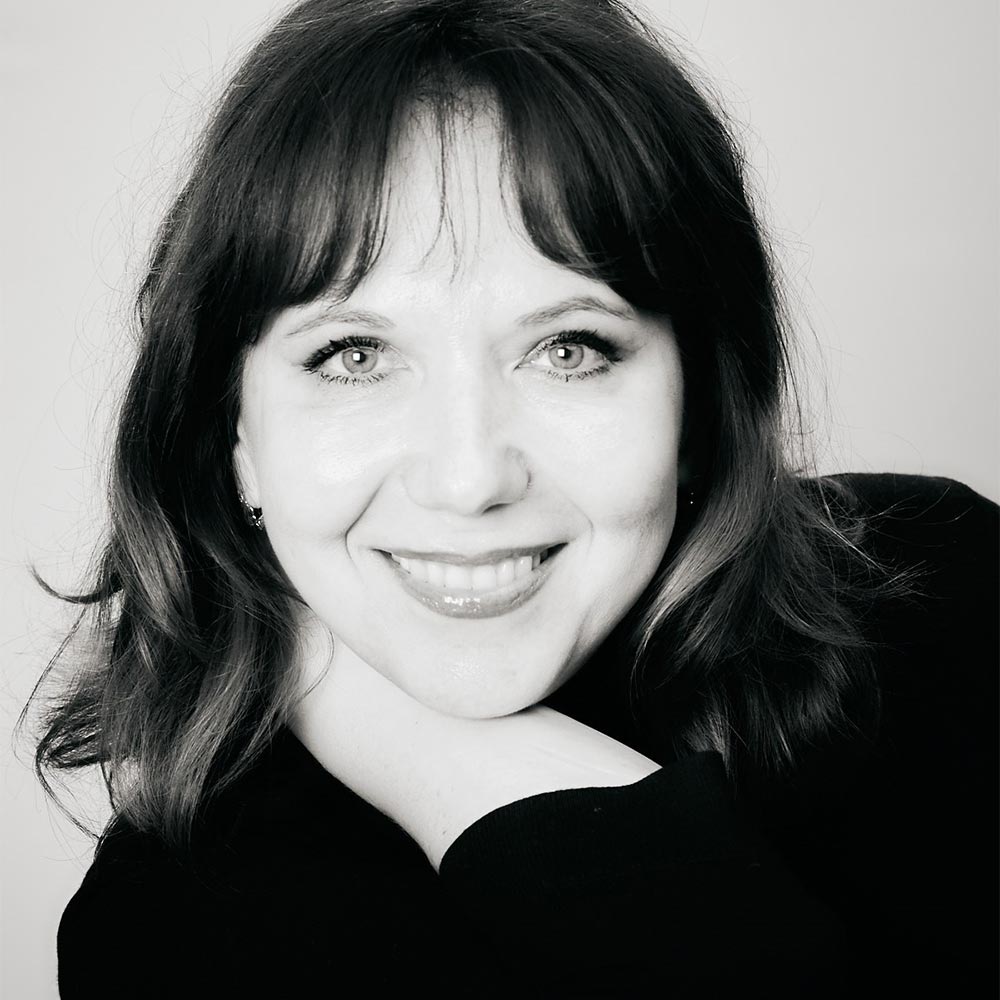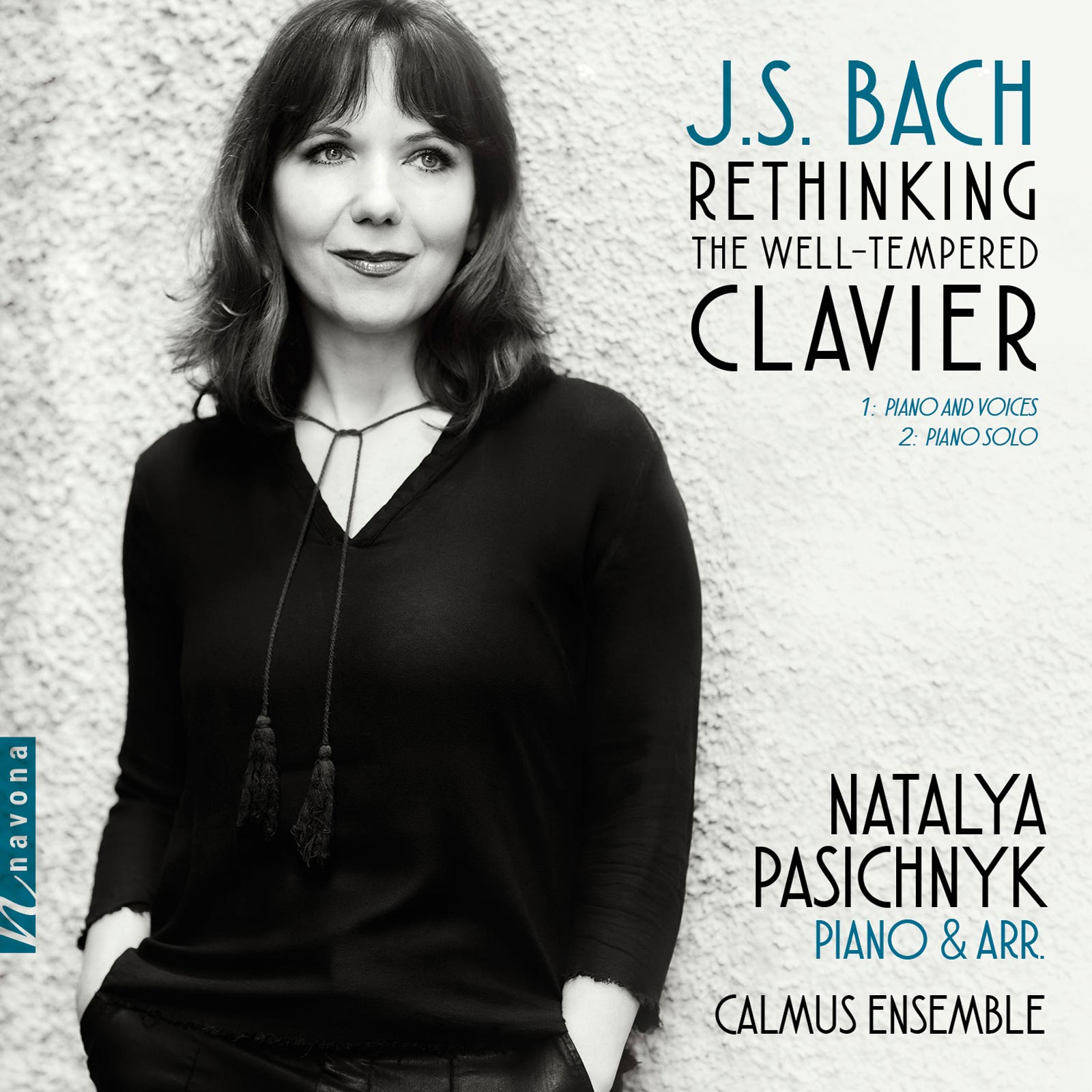
With its innumerable recordings by the greatest pianists in history, one would think the book has been written on Johann Sebastian Bach’s timeless pianistic masterpiece, The Well-Tempered Clavier. Renowned Swedish-Ukrainian pianist Natalya Pasichnyk now adds her name and interpretation to this illustrious list with RETHINKING THE WELL-TEMPERED CLAVIER. Her intellectual yet spiritual take on the matter is likely to be exactly what the composer envisioned.
Today, Natalya is our featured artist in the “Inside Story,” a blog series exploring the inner workings and personalities of our composers and performers. Read on to learn how she hopes to inspire listeners with her Navona Records release and how her early musical experiences gave her heightened nocturnal creativity…
If you weren’t a musician, what would you be doing?
If I had to answer that question before the 22nd of February 2022, I would say I could not see myself doing anything else. Music has permeated my life as long as I can remember myself. But after this date, which divided the modern history to before and after, I really regret that I didn’t head to become someone within politics or international relations. I feel very desperate that I cannot do anything about this terrible injustice and cannot influence the right decisions to be made.
If you could collaborate with anyone, who would it be?
David Suchet, a famous English actor. I really would like to do a poetry-music project with him. I see and hear it inside my head already. Genius poetry by Valys Stus, a Ukrainian poet who refused to bow under the oppression, was imprisoned, sent to Siberia and killed there in 1986, the year when the world thought that Russia was on its way to become a civilized democratic country. I first fell in love with David Suchet in my youth through his Poirot films, as did most of us. Later I discovered his recordings of Psalms and then the other books of the Bible. These recordings were a consolation for me in many moments of my life. I even took courage and tried to find his contact details, but didn’t succeed.
What advice would you give to your younger self if given the chance?
Oh, please, do not waste your time! Learn as much repertoire as possible (because it is more and more difficult with every year), do all the projects you are dreaming about now, do not wait until later (because when you are in a professional routine, it is almost impossible to find the time to do something outside) and… don’t take yourself too seriously!
What emotions do you hope the listener will experience after hearing your work?
It depends on the music itself and the situation. For example, most of Mozart’s sonatas, where the music tries to escape from serious tragic issues, will elicit different emotions than Brahms’ dark and tragic themes. With this specific Bach project, I would probably answer with Bach’s own words: “the aim and final end of all music should be none other than the glory of God and the refreshment of the soul.” Or “recreation of the spirit,” in other translations. Bach’s faith generated his music. I really hope that my new interpretation can in turn generate faith, we need it in our current times more than ever.
Where and when are you at your most creative?
My husband complains all the time that my prime time starts when he goes to bed. I remember when I was a student in a music boarding school. We had the possibility to practice only before the lectures started, at 8.30 a.m. or after, at 7 p.m. I really tried many times to get up at 6 a.m., but my day was completely destroyed. So I embraced the fact that my muse comes when it comes. I have the luxury to nurture my creativity during nights, and I am very happy about that (and even my husband, when he hears the result. :) )
What are your other passions besides music?
Before the war I would say skiing. It was my real passion. I dragged my whole family to the edge sometimes with my intense skiing schedule during our holidays. But now… I could give away anything to just spend more time with my parents, not worrying about them sitting in a cold shelter, hiding from Russian bombs, going for coffee with my daughter, visiting my friends, doing all those things that we all take for granted but that turned out to be very fragile.

Ukrainian-born Natalya Pasichnyk, prize winner of several international piano competitions, has with Stockholm as her base, and with her deeply intellectual and creative interpretations, established herself as one of Europe's leading concert pianists. Sweden’s biggest classical music journal OPUS magazine listed her twice (2014, 2022) as one of Sweden's most influential cultural personalities. She has over the years also dedicated much energy on uncovering the unknown Ukrainian musical treasure for the Western audiences, and she has frequently appeared in both radio and TV.

